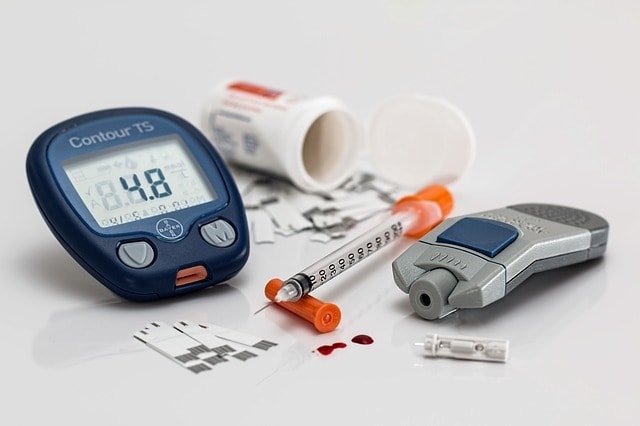 Low blood sugar is also known as hypoglycemia which is when the blood glucose level is less than 50 mg/dL [1].
Low blood sugar is also known as hypoglycemia which is when the blood glucose level is less than 50 mg/dL [1].
This is tested shortly after the child is born and they are given a heel prick to test their glucose levels.
While everything at that time can be remedied, there are certain considerations to watch out for, if this is going to be a normal thing and they are diabetic, or if this is because of other issues during pregnancy.
We also will take a look at what potential considerations are for the future, especially in those that aren’t treated quickly.
High-Risk Babies and Potential Causes
There are a few reasons that the child could have been susceptible to having low blood sugar, Stanford Children’s Health provides a listing of some of the higher risk babies who might suffer from hypoglycemia:
- Babies born to diabetic mothers
- Small babies, large babies, and premature babies
- Babies born under stress
- Moms were treated with certain medications
We must also consider the causes of hypoglycemia in infants as there can be multiple underlying reasons for that. URMC Rochester [2] went into detail as well as to what conditions could be the underlying cause of hypoglycemia:
- The mother did not have optimal nutrition during pregnancy
- The mother had poorly controlled diabetes
- Incompatible blood types between mother and baby
- Birth defect
- Congenital metabolic disease
- Low oxygen at birth
- Liver disease
- Infection
But now that you know what the disease is how you can recognize the need to see your doctor.
Symptoms of Low Blood Sugar in Newborns
There are a few things that you’ll want to watch for if your child does have low blood sugar.
One thing that you could notice is seizures or convulsions which is a medical emergency and requires admission to Neonatal ICU.
Other symptoms of hypoglycemia include Cyanosis (bluish discoloration of skin and/or lips), jitteriness, hypothermia, reluctant to feed, decrease muscle tone, decrease energy (lethargy), breathing difficulties and grunting sounds [3].
Treating Low Blood Sugar
Neonatal hypoglycemia is treated with extra feedings of either formula or breastmilk (and if the mother is trying to exclusively nurse, they may still have to supplement). A sugar solution is given through IV line if he’s unable to take oral feed. [4]
Your baby will continue to be monitored after the sugar solutions and the extra feedings and once their levels are normal they will start to wean them off the IV.[5]
However, if that doesn’t fix the issue, more tests will be ordered to find out the underlying cause.
Future Predictions
The prognosis is good for the newborns that don’t develop symptoms, receive immediate medical attention, and respond promptly to treatment.
A severe drop in blood glucose level for a longer period of time can result in neurological impairment for the rest of the baby’s life [6].
A study found that the children who had experienced hypoglycemia as newborn, were two to three times more likely to have impaired executive functioning and motor skills as well when they reach about 4.5 years of age.[7]
It was also stated that those who were not treated, and it went unnoticed were about four times more likely to experience negative effects [8].
This, however, does not appear to affect their intelligence, which is a positive note.
It’s Common
While most of this sounds scary and that every parent should worry, we should, however, it only affects up to about 15 percent of newborns [9] and generally, when it comes to a healthy pregnancy and mom, it doesn’t affect them at all.
There is still more testing and more long-term research that needs to be done in order to determine if it’s something that will affect the children long term, or something that can be overcome and treated, or treated differently at birth to prevent any real damage.
If you do have diabetes while being pregnant, it’s important to keep your blood sugar levels in strict control to avoid any complications in the neonate.
The delivery should conducted in the hospital and medical staff is notified to ensure that newborn’s blood glucose levels are monitored immediately following the birth and during the next few days so that the possible complications can be mitigated with proper treatment.
References
- Stanford Children’s Health. Hypoglycemia in the Newborn. [link]
- University of Rochester Medical Center. Hypoglycemia in a Newborn Baby. [link]
- Medline Plus. Low Blood Sugar – Newborns [link]
- See above #6
- See above #4
- National Institutes of Health. Treating Low Blood Sugar in Newborns. [link]
- University of Auckland via Medical Xpress. Low Blood Sugars in Newborns Linked to Later Difficulties. [link]
- See above #10
- See above #10
Image: Pixabay



